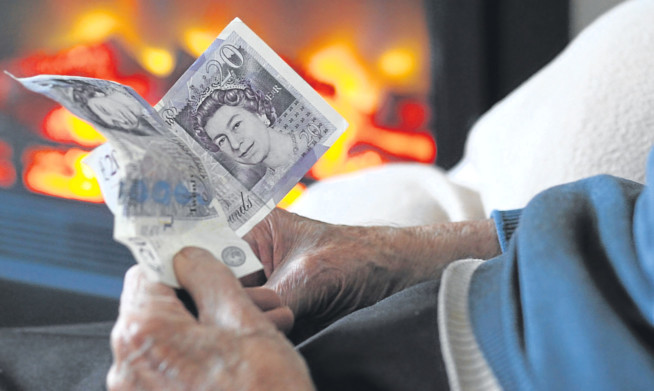A robust action plan has been drawn up to protect some of most vulnerable residents in Perth and Kinross whose lives are being made a misery by unscrupulous carers.
The wide-ranging strategy has been revealed by the council after shock statistics showed disproportionate numbers of pensioners in their eighties and adults with learning difficulties were suffering at the hands of thieves, fraudsters and violent relatives.
People at risk were most likely to be harmed by family or paid-for carers.
Bank staff are now being encouraged to flag up any suspiciously large withdrawals from the accounts of vulnerable residents, while health workers have been given extra training to recognise care abuse issues among patients.
Trading standards officers have also been racing to warn potential victims after a significant number of Perth and Kinross residents appeared on a so-called “suckers’ list” put together by scammers in England.
The strategy is detailed in a new report by the Perth and Kinross adult protection committee which outlines what action has been taken by the group and other partners, including police and NHS Tayside, since it formed two years ago.
The extensive study reveals the local authority has investigated 726 cases after more than 3,300 referrals, mostly from Police Scotland.
The people mostly likely to be victims are elderly women over 65 although 30% of all cases feature residents over the age of 81.
The number of referred cases from care homes has rocketed from 4% in 2011 to 22% last year, although the council puts this down to better training among staff to recognise and report issues.
People with learning difficulties account for 13% of adult support and protection (ASP) cases despite making up just 6% of the general population.
The report concludes that harm, either physical or financial, is most likely to happen in the victim’s home.
In 32% of cases, adults are at risk from family members, although 23% have suffered at the hands of paid carers.
In the past two years, 74 people have been referred to the group twice, while three people with learning difficulties have suffered physical, financial, sexual and self-harm and have each been referred five times.
Alex Davidson, the independent chairman of the committee, said he was encouraged by the outcome of action taken by the group and its partners.
“The adult protection committee continue to be proactive in identifying and addressing relevant areas of concern in relation to adult support and protection, thereby supporting adults who may be at risk of harm,” he said in the group’s latest report.
Councillor Ian Campbell, right, a member of the council’s housing and health committee, welcomed the action taken to date.
He said: “The report highlights that the majority of harm comes from family members or paid-for carers so we must do what we can to minimise that risk.”
The committee was formed in 2012 to support and protect adults who may be at risk of harm or neglect who may not be able to protect themselves.
The group meets four times a year and includes representatives of the Scottish Ambulance Service, and the fire brigade, as well as bankers and health workers.
In the last two years, there have been 18 large-scale inquiries led at 15 care homes and three care at home organisations in Perth and Kinross.
These followed reports of inappropriate staff behaviour, violence between residents and bullying, among others.
Ongoing action taken by the committee includes a separate action plan to specifically address care home cases.
